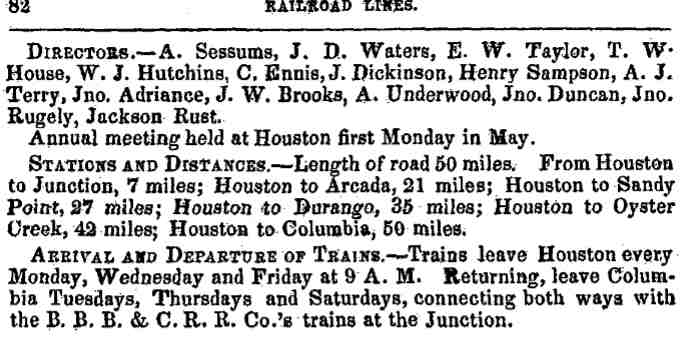
Jonathan D Waters
Waters, Major Philemon Obituary
WATERS, JONATHAN DAWSON (1808-1871). Jonathan Dawson Waters, planter, was born in Newberry District, South Carolina, on December 1, 1808, the youngest child of Ruth (Llewellyn) and Philemon Waters, Jr. Both his father and grandfather fought in the American Revolution. Waters arrived in Texas on March 1, 1840, and purchased a large plantation that he named Arcola. He continued buying land, including the plantation of his nephew, Robert G. Waters, after being released from Perote prison, where he had been sent as a member of the Mier expedition. By 1860 Waters had one of the largest plantations in Texas and was considered the wealthiest person in Fort Bend County. Another relative, J. P. Waters, may have managed Arcola by 1860. Waters grew sugar cane and cotton; he also built a sugar mill and a brickyard in 1849, and he had a cotton gin on the plantation. He later was a major stockholder and president of the Buffalo Bayou, Brazos and Colorado Railway, which was incorporated in 1850 and operational by 1855. Waters had a reputation for overworking his slaves and of feeding them nothing but cornmeal mush. The claim that he owned more than 500 slaves is surely exaggerated; the 1860 census gives him 216, and that figure made him the third largest slaveholder in Texas. In 1847 Waters was involved in a dispute over property with Collin Cox (Cock). With several friends Waters went to Cox's home and shot him, unarmed, in front of Mrs. Cox. Waters evidently was never brought to trial for the murder. Waters was first married in 1828 to Sarah Elizabeth Grigsby, who died in January 1848. Three months later Waters married twenty-one-year-old Clara Byne. This wife died in Galveston in May 1860 and was buried at Arcola. Sometime before the end of 1860 Waters married Clara's sister Martha Byne McGowen, a widow. As Waters had no children by any marriage he adopted Martha's three children. Waters may have lived in Galveston by 1860, for Clara died there. In 1863 he purchased a colonial mansion later known as the Waters-Moody house and pictured in Historic Galveston Homes. The house was used as a hospital during the Civil War. The war cost Waters his fortune, since he had supported the Confederacy with a $100,000 donation. He died in Houston on July 3, 1871, and was probably buried in Galveston. His will, made on November 2, 1866, was recorded in Galveston on February 12, 1872.
Col. Johathan Dawson Waters house in Galveston
Below are excerpts from the City of Houston Directory 1866

